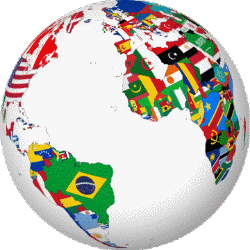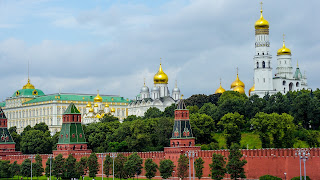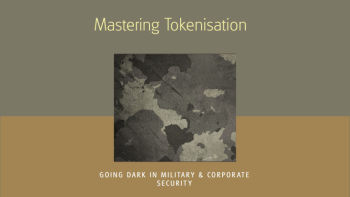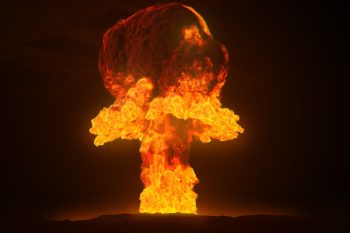Russia’s National Security Strategy: A Manifesto for a New Era
Posted By: GEO´ PRChannel Team – Gibraltar
www.GEOPoliticalMatters.com
Russia’s new, forty-four-page National Security Strategy signed by President Vladimir Putin on July 2 is a remarkable document. It is much more than an update of the previous paper, adopted in 2015. Back then, relations with the West had already sharply deteriorated as a result of the Ukraine crisis, but were still considered salvageable; much of the liberal phraseology inherited from the 1990s was still in use; and the world still looked more or less unified. The current version of arguably the most important Kremlin strategy statement—covering not only national security issues, but a whole range of others, from the economy to the environment, and values to defense—is a manifesto for a different era: one defined by the increasingly intense confrontation with the United States and its allies; a return to traditional Russian values; and the critical importance for Russia’s future of such issues as technology and climate.
The central feature of the new strategy is its focus on Russia itself. The Russian leadership has every reason right now to turn homeward to address the glaring weaknesses, imbalances, and inequalities of the country’s internal situation.
The strategy lays out a view of a world undergoing transformation and turmoil. The hegemony of the West, it concludes, is on the way out, but that is leading to more conflicts, and more serious ones at that. This combination of historical optimism (the imminent end of Western hegemony) and deep concern (as it is losing, the West will fight back with even more ferocity) is vaguely reminiscent of Stalin’s famous dictum of the sharpening of the class struggle along the road to socialism. Economically, Russia faces unfair competition in the form of various restrictions designed to damage it and hold it back; in terms of security, the use of force is a growing threat; in the realm of ethics, Russia’s traditional values and historical legacy are under attack; in domestic politics, Russia has to deal with foreign machinations aimed at provoking long-term instability in the country. This external environment fraught with mounting threats and insecurities is regarded as an epoch, rather than an episode.
Against this sobering background, the central feature of the strategy is its focus on Russia itself: its demographics, its political stability and sovereignty, national accord and harmony, economic development on the basis of new technologies, protection of the environment and adaptation to climate change, and—last but not least—the nation’s spiritual and moral climate. This inward focus is informed by history. Exactly thirty years ago, the Soviet Union collapsed just as its military power was at its peak, and not as a result of a foreign invasion. Having recently regained the country’s great power status and successfully reformed and rearmed its military, the Russian leadership has every reason now to turn homeward to address the glaring weaknesses, imbalances, and inequalities of the country’s internal situation.
The paper outlines a lengthy series of measures for dealing with a host of domestic issues, from rising poverty and continued critical dependence on imported technology to the advent of green energy and the loss of the Soviet-era technological and educational edge. This certainly makes sense. Indeed, the recent Kremlin discovery of climate change as a top-tier issue is a hopeful sign that Russia is overcoming its former denial of the problem, along with inordinately exuberant expectations of the promise of global warming for a predominantly cold country. After all, the Kremlin’s earlier embrace of digitalization has given a major push to the spread of digital services across Russia.
The strategy does not ignore the moral and ethical aspects of national security. It provides a list of traditional Russian values and discusses them at length. It sees these values as being under attack through Westernization, which threatens to rob the Russians of their cultural sovereignty, and through attempts to vilify Russia by rewriting history. In sum, the paper marks an important milestone in Russia’s official abandonment of the liberal phraseology of the 1990s and its replacement with a moral code rooted in the country’s own traditions. Yet here, the strategy misses a key point at the root of Russia’s many economic and social problems: the widespread absence of any values, other than purely materialistic ones, among much of the country’s ruling elite. The paper mentions in passing the need to root out corruption, but the real issue is bigger by an order of magnitude. As each of President Putin’s annual phone-in sessions with the Russian people demonstrates—including the most recent one on June 30—Russia is governed by a class of people who are, for the most part, self-serving, and do not care at all for ordinary people or the country, instead focusing single-mindedly on making themselves rich on the job. Money—or rather Big Money—has become that group’s top value, and the most corrosive element in today’s Russia. Therein lies perhaps the biggest vulnerability of modern Russia.
On foreign policy, the strategy is fairly elliptic, but it gives a hint of what the upcoming Foreign Policy Concept might include. The United States and some of its NATO allies are now officially branded unfriendly states. Relations with the West are de-prioritized and those countries ranked last in terms of closeness, behind former Soviet countries; the strategic partners China and India; non-Western institutions such as the Shanghai Cooperation Organization, BRICS, and the Russia-India-China trio; and other Asian, Latin American, and African countries. In addition to U.S. military deployments and its system of alliances, U.S.-based internet giants with their virtual monopoly in the information sphere, and the U.S. dollar that dominates global finances are also seen as instruments of containing Russia.
Overall, the 2021 Russian National Security Strategy seeks to adapt the country to a still interconnected world of fragmentation and sharpening divisions, in which the main battle lines are drawn not only—and not even mostly—between countries, but within them. Victories will be won and defeats suffered largely on domestic turf. Accordingly, it is the Home Front that presents the greatest challenges, and it is there that the main thrust of government policies must be directed.
This article was published as part of the “Relaunching U.S.-Russia Dialogue on Global Challenges: The Role of the Next Generation” project, implemented in cooperation with the U.S. Embassy to Russia. The opinions, findings, and conclusions stated herein are those of the author and do not necessarily reflect those of the U.S. Embassy to Russia.
Carnegie does not take institutional positions on public policy issues; the views represented herein are those of the author(s) and do not necessarily reflect the views of Carnegie, its staff, or its trustees.
About Dmitri Trenin – Director, Carnegie Moscow Centre
Dmitri Trenin, director of the Carnegie Moscow Centre, has been with the centre since its inception. He also chairs the research council and the Foreign and Security Policy Program.
He retired from the Russian Army in 1993. From 1993–1997, Trenin held a post as a senior research fellow at the Institute of Europe in Moscow. In 1993, he was a senior research fellow at the NATO Defense College in Rome. On Twitter @DmitriTrenin
https://twitter.com/DmitriTrenin
About Carnegie Moscow Centre
Established in 1994, the Carnegie Moscow Center is a leading source of in-depth analysis and insight on the complex issues facing Russia and the countries of the former Soviet Union. The centre’s priority areas focus on foreign policy and security strategy, domestic politics and economics, and societal trends. United by a commitment to evidence-based, nonpartisan research on a broad range of challenges, Carnegie Moscow combines unparalleled local and regional expertise with a global perspective to provide both actionable and impactful policy recommendations.
Learn More/…









